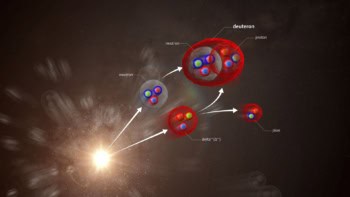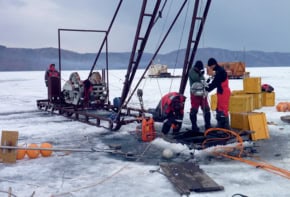
Physicists in the UK have failed to persuade research council bosses to rejoin preparations for the International Linear Collider (ILC). The decision to pull the UK out of the project had been announced in December by the Science and Technology Facilities Council (STFC) after it was awarded an average annual funding increase of just 4.5% over the next three years, which left it with £80m less to spend than planned.
But despite strong protests from physicists, the STFC says in a statement released today that it has “reaffirmed its decision to stop funding the ILC”, which is seen as the next big experiment in particle physics after the Large Hadron Collider at CERN. The statement was released following a meeting of the STFC’s council last week.
I can never accept the legitimacy of the deeply flawed process that has led to the STFC’s withdrawal from the ILC Brian Foster, Oxford University
The STFC has also confirmed that it will stop funding for solar-terrestrial physics and that it will cut its investment in the two 8 m Gemini telescopes in Hawaii and Chile, which will prevent UK astronomers from using either facility despite the country having been a founding member of the project and having invested more than £35m in the telescopes.
Delivery plan
The decision to withdraw from the ILC was first revealed in a “delivery plan” that the STFC published in December, which outlined its scientific priorities over the next three years in the light of the £80m funding shortfall. Bosses at the STFC will spend the next three weeks considering that document, before making a final decision on 27 February of what to fund, although the decisions concerning the ILC, Gemini and solar-terrestrial physics will not be reversed. The STFC will then begin “a period of consultation with the community concerning the implementation of the plan”.
Brian Foster from Oxford University in the UK, who is European director of the ILC’s global design effort, says he regrets — but is not surprised by — the STFC council’s decision to withdraw from the ILC.
“At no time has council or any of its subsidiary bodies, or the chief executive, seen fit to discuss this ill-informed decision with me or our international partners, but has instead presented it as a fait accompli,” Foster told physicsworld.com. “While I am grateful that various STFC officials are working constructively with me to try to rescue some of the world-leading work in the UK, I can never accept the legitimacy of the deeply flawed process that has led to the STFC’s withdrawal from the ILC. I will continue to make the case for this vital world project in the hope that STFC will rejoin in the future.”
Michael Rowan-Robinson, president of the Royal Astronomical Society, told physicsworld.com that he is pleased that the STFC is seeking input from the scientific community in implementing its plans. “However, I am still not happy either with the funding allocation or the way it has been managed by the STFC,” he says.
Not as bad as it seems
In its statement, the STFC tries to show that the overall funding situation is not as bad as it might appear. It points out that it does not envisage any compulsory redundancies taking place before the summer, apart from the 180 staff who will lose their jobs over the next two years as a result of the scheduled closure of the Synchrotron Radiation Source at the Daresbury Laboratory in Cheshire.
The STFC also claims that particle-physics grants will be worth £7.1m more in 2008/9 than in 2005/6 — a rise of 43% — and that grants for astronomy will rise by 67% over the same period as a result of the research councils having to pay the “full economic cost” of research projects. In the past, grants included only about half of the “indirect” costs of a project, which go towards buying equipment and paying the salaries of permanent staff.
But Mark Lancaster, a particle physicist at University College London, is not impressed with the STFC’s statement. “There is nothing really new here, apart from a moratorium on compulsory redundancies,” he says. “The STFC has spun it the best it can but the numbers speak for themselves: there will be 25% fewer astronomy post-docs in 2011 than in 2008. Project grants will still be cancelled and existing rolling grants will be cut.”



